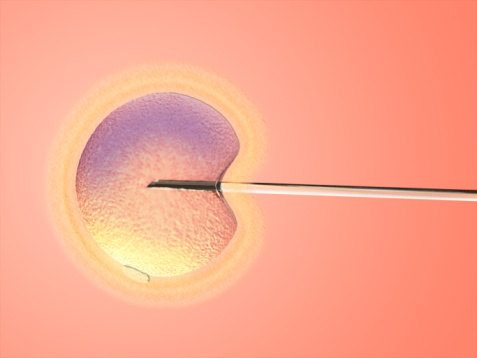
A deceased man’s child is not always a child under Florida law when it comes to Social Security benefits. So said the Supreme Court in Astrue v. Capato, a case where modern technology collided with federal entitlements.
Robert Capato was diagnosed with cancer, and had a sperm sample frozen before beginning chemotherapy. He lost his battle with cancer while he lived with his wife Karen in Florida. Karen later conceived twins through artificial insemination, then applied for survivorship benefits for the twins when living in New Jersey. The Social Security Administration (SSA) denied Capato’s claim, citing regulations SSA developed after a formal rulemaking process years ago.
The Supreme Court agreed in a unanimous decision written by Justice Ruth Bader Ginsburg. Although each of the twins was Karen’s child, they nonetheless did not meet the definition of being Robert’s “dependent child” under this part of the Social Security program. The provision of the Social Security law at issue, Section 416(e), does not define the word “child.” Yet another subsection, Section 416(h), requires SSA to use the legal definition from the state where the person died, and adds that definition applies throughout multiple sections, which would include 416(e).
Under Florida law, a child born to a dead father is considered the father’s legal child only if the father was still alive when the child was conceived but died during the nine-month pregnancy before birth. In this case, the twins were conceived long after Robert passed away.
Courts must defer to agency regulations that interpret federal laws administered by the agency, so long as (1) Congress’ law delegated authority to the agency on the issue, (2) Congress’ law is ambiguous on the issue being discussed, and (3) the agency’s interpretation is reasonable. SSA’s interpretation meets those requirements here, so federal courts will uphold the interpretation even if other interpretations would likewise be reasonable.
Capato also tried arguing that a different provision in federal law would require SSA to pay survivorship benefits to the children of a married couple. But again Ginsburg sided with SSA, reasoning that under Florida law a marriage ends at the moment of death, so the twins here were born to a widow, not to a married couple.
Ginsburg noted that the justices were sympathetic to Capato’s plight, but this federal law did not give the courts latitude to make exceptions. “It was nonetheless Congress’ prerogative to legislate for the generality of cases. It did so here by employing eligibility to inherit under state intestacy law as a workable substitute for burdensome case-by-case determinations whether the child was, in fact, dependent on her father’s earnings.”
Ginsburg summed up the Court’s proper role in this case well. “Tragic circumstances–Robert Capato’s death before he and his wife could raise a family–gave rise to this case. But the law Congress enacted calls for resolution of Karen Capato’s application for child’s insurance benefits by reference to state intestacy law. We cannot replace that reference by creating a uniform federal rule the statute’s text scarcely supports.”
Astrue v. Capato is the latest example of where the law seems outdated in light of modern technology. As we continue to cross new medical thresholds on issues of life and death, we will continue to face situations that Congress did not anticipate when it first wrote a law. But the solution must be for Congress to update those laws one way or the other, not for courts to presume the power to reinterpret them as “living documents” at every turn.
Today, at least, all nine justices agreed on that basic premise. We’ll see if they all still agree next week.
Breitbart News legal contributor Ken Klukowski is on faculty at Liberty University School of Law.
Note: an earlier version of the article attributed the opinion to Elena Kagan, who wrote an opinion in a separate decision delivered on the same day, rather than Ruth Bader Ginsburg.

COMMENTS
Please let us know if you're having issues with commenting.